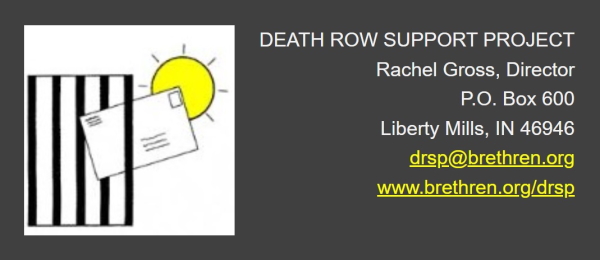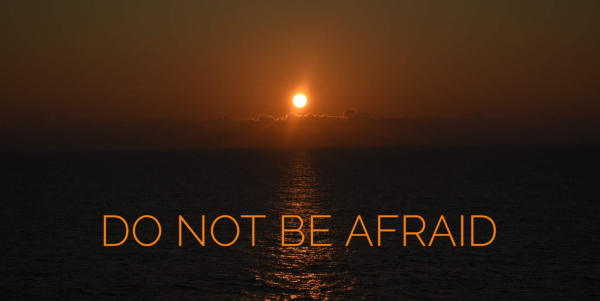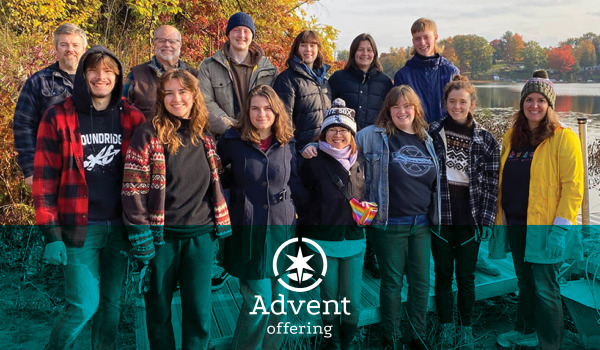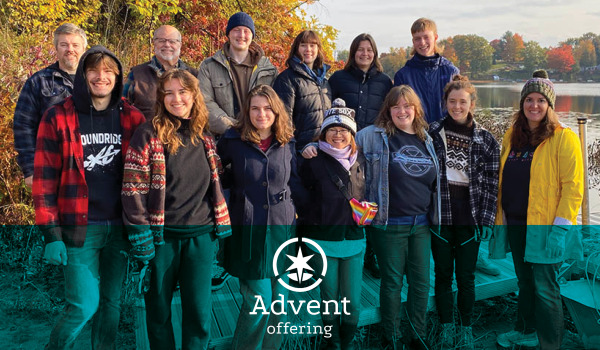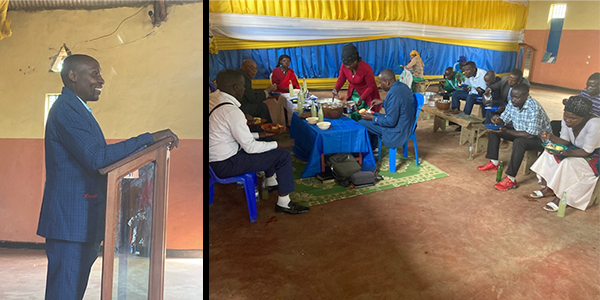
A reflection by Chris Elliott about ministry for the Church of the Brethren in Rwanda
Among my favorite places on the planet is the little village of Gasiza in Rwanda. Nestled in the Virunga mountains, it isn’t exactly remote, as it’s less than a one hour drive from our home in Gisenyi. But a good bit of the journey is over very poor roads, giving one the impression that it’s farther out than it really is.
The location is so beautiful that it might be described as stunning. The farms are well maintained and very productive. There are onions, cabbages, potatoes, beans, tomatoes, maize, bananas, eggplant, mangoes, avocados – and the list goes on. One hears dairy cows lowing and sheep bleating in the background. The view is incredible. On a clear day you can see Lake Kivu in the distance, as well as the volcano Mt. Niyirigongo in neighboring Congo.
But the real reason it is one of my favorite spots is the Gasiza Church of the Brethren. The congregation is led by Peter Claver Habimana, a fifty-something man with a dear little wife, Mama Josephine, and a family of eight children. When a younger man, he was, by his own description, a drunkard and an atheist. God miraculously saved him and changed his life. He eventually became the pastor of a Pentecostal church and ultimately joined the Brethren in 2015.
Pastor Claver, as we call him, doesn’t have much education. He is though, a very gifted preacher, with a big heart. He works very hard as a bi-vocational pastor. Along with service to the church he is a carpenter and a farmer. His embodiment of a solid work ethic is powerful in an environment where many pastors are expecting others to do and provide for them. As a student at the Great Lakes Bible School (GLBS), Pastor Claver is learning English, applying previously learned Bible knowledge, and just as importantly, serving as a wonderful example for others.
One of the key teachings we are emphasizing in the Great Lakes Bible School is servant leadership. While pastors are indeed leaders of people, pastors are also servants. I suppose that most would recognize the importance of a pastor’s submission to the Master Jesus Christ. But all too often, leaders are subsequently expecting their church members to be in submission to them, rather than leading with the understanding that we all are in submission to each other (Ephesians 5:21).
Another important feature of GLBS is the mix of students and faculty. Age, education and experience range across the spectrum. At 66, I’m the oldest one. Our view is that the older ones will mentor the younger and that the younger bring energy and vitality. It has been heartwarming to watch the interactions among the students. The mentoring is quite obviously taking place, but the energy is also apparent, not only from the younger to the elder, but a mutual iron-sharpening-iron. Even though pastors like Claver are the seasoned ones, there is no attitude of superiority.
This past Sunday, Theoneste (principal/head teacher) and I, along with our two Burundian students made the road trip to Gasiza for morning worship. We arrived at 9 as the folks were just gathering. The music started promptly, with lots of dancing to accompany the singing. The four choirs took turns leading the congregation as the pastor intermittently spoke and read from the Scriptures. The guest preacher (me) shared for a half hour or so. After a closing song and prayer, the service concluded shortly before noon.
As the congregation dispersed, we stayed behind with the pastor and deacons. A feast was spread before us of beef, potatoes, rice, beans and Fanta. I noticed that neither the pastor nor his wife were eating. They were both busy ensuring that everyone else was taken care of. Finally, when all were served, they sat down to eat their own meal. I pointed this out to Theoneste. He said, “You’re right – they are servant leaders.” It is my prayer that all of our church leaders here in the Africa Great Lakes region will learn by their example.
Learn more about the Church of the Brethren in Rwanda at www.brethren.org/global or support the Office of Global Mission at www.brethren.org/givegms.





